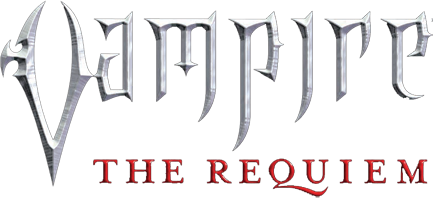This Masquerade tradition is only lightly spoken of in the Invictus book, but since it is in full force in Twilight Valley, I thought I'd expound upon it.
Drawn from the 2nd ed. The Vampire Player's Guide and the 2nd ed. Laws of the Night.
Prestation is the name the Kindred give for the art of using Status, and is technically defined as when one Kindred officially becomes indebted to another for services rendered. In reality, however, Prestation is a far more complicated system than that, and its rules are enforced with lethal zeal by its participants.
Players should first make it clear who's doing the favor and who's receiving it. The receiver owes a Boon to his bestower which must be categorized as a Trivial, Minor, Major, Blood, or Life Boon:
Trivial Boons are one-time favors of small scope, such as appearing at a soiree one would not otherwise attend, acting as a messenger to another vampire and passing along information, keeping an eye on a favored Retainer for the evening, and so on.
Minor Boons can last more than one evening, and they usually entail some sort of inconvenience, such as allowing safe passage through a hostile city, revealing confidential information, or aid in disposing of some threat.
Major Boons usually involve a significant expenditure of time or resources on the bestower's part. The effects of the favor usually last for many game sessions. An example of such a Boon would be teaching the receiver a new Discipline, purchasing a nightclub to serve as the receiver's haven, or rendering substantial aid in disposing of a threat while there is an element of risk.
Blood Boons occur when the bestower places herself in a potentially unlife-threatening situation in order to help the receiver. Thus the name "Blood Boon" - the bestower is willing to shed her blood for the receiver.
Life Boons involve the bestower actively risking her immortal life for the receiver so the receiver may live.
Keep in mind that all Boons are relative. This is such an essential tenet of Prestation, that it deserves to be in bold-face and all caps: ALL BOONS ARE RELATIVE. This means that you, as a vampire, can charge "whatever the market will bear". A hundred bucks may not mean squat to that filthy rich Ventrue, but if that's what a desperate Gangrel needs to survive, the Gangrel might well wind-up getting charged a Major or even Blood Boon if he's in grave enough danger! Similarly, that same Gangrel might be able to easily defeat a mortal stalker that is troubling a Toreador in his city, but he still charges her a Major Boon because she can't get rid of him herself.
Such fluctuations in the value of a Boon lead some to complain of "Boon extortion" or "inflation", but that's the way business has been done for as long as even the Ancients can remember. The only way for a receiver to rid herself of a Boon permanently is to repay or ignore the favor. Welshing on Boons is a grave insult in Kindred society, often resulting in a scandal that alert Harpies are all too eager to circulate. In the Domain of Darkeport, with its tradition of trials and system of vampiric jurisprudence, this almost always results in a grievance being brought against the offender (later articles will expand on this, but essentially there is an active legal system in the Domain).
Getting yourself out of debt is usually an event arranged through roleplaying. Typically, players eliminate Boons by returning equivalent favors. However, if the bestower is in sufficient danger, you might pay off your debt by returning only a small favor; indeed, you might even be able to put the original bestower in your debt! It all rests on a sense of timing and a character's skill at bartering. Other Kindred may resent you for doing so, but during a crisis a matter of Prestation may seem a small price to pay.




















 Draft this Post
Draft this Post

